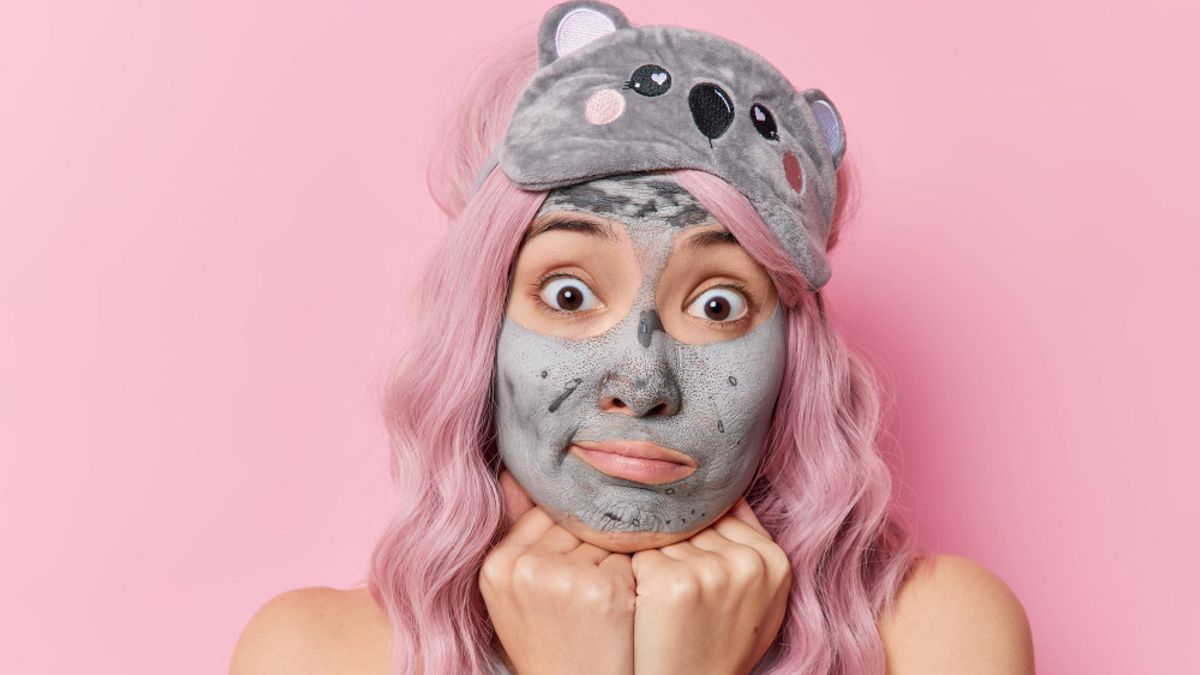YOGYAKARTA - So, you just got to know skin care. Or, maybe you've decided it's time to take your routine to the next level with more than just a simple cleaning and moisturizing. Then what are the skincare ingredients that shouldn't be used at the same time?
Then, you've done research, read some online reviews, and store products in your budget that will handle your main areas of concern. Now, you just need to know if these ingredients in all creams, serums, and masks work harmoniously.
Melanesia of the mixed skin care site 101. Second, choosing a formula for your skin type and problems, it's important that all the products in your routine complement each other so you can actually see the results. "Mixing the ingredients without the right knowledge of how these ingredients work and what other ingredients might interact with them not only waste money but also time. It can also lead to frustration if results look less than expected (or if the skin gets irritated)," says Dr. Shari Marchbein, a board-certified dermatologist in New York City.
Irritation of the skin is another major factor that needs to be considered when compiling a series of products in your skin care routine. "Your skin care routine must include complementary products to avoid too dry, peeling, or irritate the skin," added Dr. David Lurtscher, board-certified dermatologist and Curology CEO. "More isn't always better."
With the help of both dermatologists, we have compiled complete guidelines on what to and not do in mixing and matching the most popular skin care ingredients found in skincare products.
Retinol
This is one of the most respected skin care ingredients recommended by dermatologists. Also known as vitamin A, what makes retinol so great is driving skin cell turnover, which can help improve the appearance of fine lines, wrinkles, uneven skin textures, black spots, and acne. The only catch? Retinol can be very irritate.
"Retinol is an effective anti-aging ingredient, but it can exacerbate skin dryness," explains Dr. Lurtscher.
Don't Mix: Retinol with vitamin C, benzoil peroxide, and AHA/BHA acid.
The acid of AHA and BHA is exfoliating, which can dry the skin and cause further irritation if your skin care routine already contains retinol.
As for benzoil peroxide and retinol, the two cancel each other. "It is not recommended to use benzoil peroxide and retinoids simultaneously because both can cancel each other so that it makes it less effective," explains Dr. Marchbein.
Finally, because vitamin C protects the skin from environmental aggressors and retinol repairs and rebuilds the skin, it is best used at the opposite time. (Further about that in a moment.)
Vitamin C
"Vitamin C protects the skin from oxidative free radical damage and works the best in the morning," said Dr. Marchbein. This material also brightens the skin and can even brighten black spots.
Don't Mix: Vitamin C with retinol.
Unlike vitamin C, retinol and retinoid build collagen and help repair the skin, so it should be used overnight. Because vitamin C thrives during the day, it is better to separate these ingredients from each other because they have different functions.
Asam AHA/BHA
Salicylic acid, glycolate, and lactic are effective exfoliating ingredients that can improve skin texture and color, and in the case of SA, treat acne. It is said that these three acids can dry and irritate the skin. The point is: When using products with AHA or BHA acid, follow up with hydrating products.
Don't Mix: Asam AHA/BHA with retinol.
"I strongly warn those who also use retinoids for acne or anti-aging because combinations with various acids can cause excessive skin sensitivity, irritation, and redness. In fact, AHA and BHA should not usually be used alongside retinoids on the same day," explains Dr. Marchbein. "Also, be careful combining various acids or even physical and chemical exfoliants, as this can cause irritation and even eczema."
Benzoil peroxide
Benzoil peroxide can be an addition that changes the game for your skin care routine if you have skin that tends to acne. Commemoration? This is another drying ingredient. Due to acne treatment, in general, it can cause dryness and irritation of the skin, combining the two must be done carefully and every other part of the skin care routine (namely cleaning and moisturizing) must be very gentle and highly hydrating. each, "explained Dr. Marchbein.
Don't Mix: Benzoil peroxide with retinol, carefully prescription tretinoin acne.
As mentioned earlier, benzoil peroxide and retinol can disable each other if used simultaneously. While prescription acne treatment can be used with BP, tretinoin requires extra care.
Dr. Lurtscher explained: "Depending on how the product is formulated, benzoil peroxide can disable tretinoin if mixed together in the same bottle. According to our experience, this drug works well when applied to the skin one by one and doesn't matter the sequence, simply rub one product gently and thoroughly before applying the other," he said. "If you want to minimize the possibility of interaction if you use tretinoin, apply a formulation containing tretinoin in PM, and use benzoil peroxide in AM, or use benzoil cleaning peroxide instead of coating-on benzoil peroxide."
Niacinamide
Or known as vitamin B3, this antioxidant is an anti-inflammatory that can brighten the skin and even remove color change.
Don't Mix: Niacinamide and vitamin C.
Meski sama-sama antioxidant, vitamin C adalah salah satu bahan yang tidak cocok dengan niacinamide. "Keduanya adalah antioxidant yang sangat umum digunakan dalam berbagai produk perawatan kulit, tetapi keduanya tidak boleh digunakan secara sequenti," kata Dr. Marchbein. "Potensi mereka kurang secara signifikan saat digunakan bersama, kecuali aplikasi diberi jarak setiap setiap 10 menit antara setiap serum."
SPF
If you're going to use one skin care product, make it an SPF. This is the only way to effectively protect the skin from cancer and environmental aggressors, which can lead to signs of premature aging. Given its importance, the SPF can be coated with any skin care ingredient.
So after knowing the content of skincare that should not be used at the same time, watch other interesting news on VOI, it's time to revolutionize news!
The English, Chinese, Japanese, Arabic, and French versions are automatically generated by the AI. So there may still be inaccuracies in translating, please always see Indonesian as our main language. (system supported by DigitalSiber.id)









